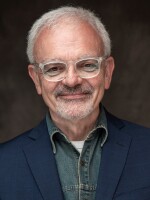SCOTT SIMON, Host:
NPR's Don Gonyea reports.
DON GONYEA: As he stood before cameras, small wounds were visible on his face. Injuries to his neck were also apparent above his shirt and tie. Although he took no questions, he said accidents happen even if you're careful. Then he added this.
HARRY WHITTINGTON: My family and I are deeply sorry for all that the vice president and his family have had to go through this past week. We send our love and respect to them as they deal with situations that are much more serious than what we've had this week.
GONYEA: Vice President Cheney himself went home yesterday as well, in his case to Cheyenne, Wyoming and a cheering crowd of state legislators.
DICK CHENEY: Thankfully, Harry Whittington is on the mend and doing very well.
(SOUNDBITE OF APPLAUSE)
GONYEA: But with most of the attention on Cheney this week related to the hunting accident, he did manage to stir up some controversy on another subject as well. During his Wednesday interview with Fox News anchor Brit Hume, the investigation into the leaking of the name of CIA agent Valerie Plame came up. Cheney's former chief of staff faces criminal charges in that case, and some think he'll claim that Cheney gave him classified information to leak to reporters. Hume asked Cheney if the vice president has the authority to declassify information.
CHENEY: There's an executive order to that effect.
BRIT HUME: There is?
CHENEY: Yeah.
HUME: Have you done it?
CHENEY: Well, I've certainly advocated declassification and participated in declassification decisions.
HUME: Have you ever done it unilaterally?
CHENEY: I don't want to get into that.
GONYEA: Those words caught the attention of presidential scholar Bruce Buchanan at the University of Texas.
BRUCE BUCHANAN: Well, I was quite startled by that because it comes as close to establishing kind of a co-presidency, with respect to the use of secrecy and disclosure at least, as, to my knowledge, we've ever come, which is a remarkable thing. So far as I know, it's unprecedented.
GONYEA: Buchanan says this claim confirms two things: the remarkable level of power Cheney has in the Bush Administration and the frequency with which Cheney is associated with controversy, included the Iraq war, the CIA leak case, the fights with Congress over executive secrecy, and domestic spying without warrants. Still, Buchanan says...
BUCHANAN: I don't think it's going to change his relationship with the President. It's certainly not going to change his place of employment. I don't think it's going to reduce his scope or degree of influence inside the White House. Depending on the reactions of the people on the Republican side who have to face the voters in nine months, it may alter where Mr. Cheney does and doesn't go to try to help in that effort.
GONYEA: If Buchanan's right, it means Cheney may not have to make quite so many campaign speeches for others this fall.
BUCHANAN: I doubt if it'll break his heart.
GONYEA: Don Gonyea, NPR News, Washington. Transcript provided by NPR, Copyright NPR.






